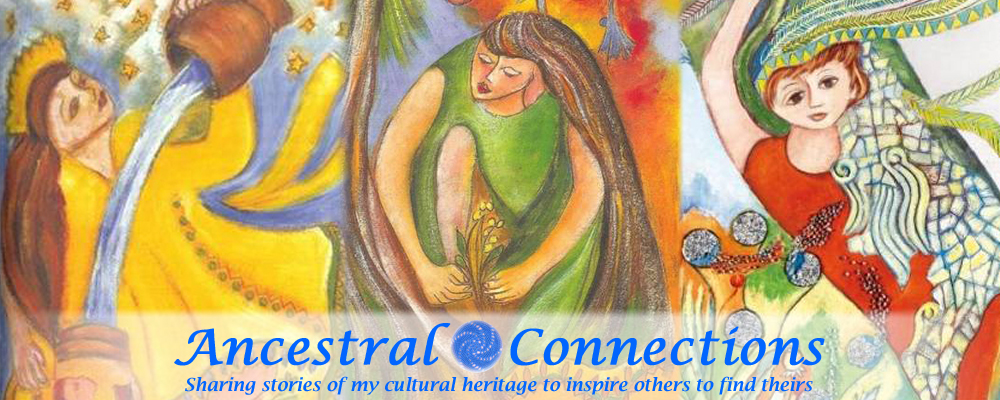 My ancestral calling began decades ago with a curiosity about my heritage. Growing up, I knew only that my four grandparents, immigrants from Europe to “L’America,” were from “The Old Country.” Their early deaths, differences of language, and the pressure for immigrants to the United States in the 20th century to assimilate all contributed to a loss of transmission of cultural identity. As a result, I was raised without an explicit knowledge of my cultural heritage. In my twenties, when I first located my grandparents’ villages in the northern Italian region of Trentino, and walked on the paths there, I felt a stirring of recognition, a genetic memory of a long connection to that land. Some part of me came alive and felt connected in a different way than I had experienced in my Colorado birthplace.
My ancestral calling began decades ago with a curiosity about my heritage. Growing up, I knew only that my four grandparents, immigrants from Europe to “L’America,” were from “The Old Country.” Their early deaths, differences of language, and the pressure for immigrants to the United States in the 20th century to assimilate all contributed to a loss of transmission of cultural identity. As a result, I was raised without an explicit knowledge of my cultural heritage. In my twenties, when I first located my grandparents’ villages in the northern Italian region of Trentino, and walked on the paths there, I felt a stirring of recognition, a genetic memory of a long connection to that land. Some part of me came alive and felt connected in a different way than I had experienced in my Colorado birthplace.
My initial research took the form of on-site genealogical research in the village churches, carefully paging through centuries-old, hand written documents, a thrilling and sometimes frustrating endeavor. Years later, while on a sabbatical to do family research in Italy, I encountered a rich spiritual heritage in the folk Catholicism embodied in the form of the Black Madonna, which became the focus of my graduate studies and master’s thesis. Through mitochondrial DNA testing, I realized more fully that my very body carried the knowledge of my family tree, one that extended much further back than the 500 years I had managed to research so far, to my oldest known mother – and the mother of all humans – in Africa 150,000 years ago. The paths of my research, both genealogical and spiritual, led to a Dark Mother.
After several research trips to document Black Madonna sites throughout Italy, my Ancestral Mothers called to me once again to know more about them. As part of a PhD program in Women’s Spirituality, I researched and studied my cultural history, with a focus on women, spirituality, and folk culture. It has been a deeply meaningful work to discover and uncover the layers of my story across time. Although I lamented having no material possessions of my grandparents, I realized that their values – including caring and sharing, respect for elders, honoring the ancestors, and care for children – have been passed down. These values, still present in the living culture, became evident in my oral interviews in the US and in Italy, and in the folk stories told across the ages.
In the days and months to come I will be sharing more of what I learned. While my stories draw from my specific cultural heritage, viewed from the perspective of a third generation Trentino American woman, I hope they will provide guidance and inspiration, just as I have been informed by the culturally specific stories of others. My cultural history – that is, the story of my culture – roots me to the past, unites me to others, and grounds me for the future. This particularity of my history, one that often has been submerged under other stories, enhances my understanding of self and others. Through this endeavor, I feel connected to the spiral of life.

I like the intertwining of personal story and history in Mary Beth’s case. This is a clear example of a woman’s search for a broader meaning in one’s life. From genealogical research to the finding of the oldest known mother, I look forward to learning more and I will follow with expectation the unfolding of this fascinating path.
Franco
I am thrilled to read the beautiful writing of this wonderful new website and look forward to future entries. I was especially moved by the passing down of values as the artifact of your ancestors instead of material possessions. I loved your artwork and the crocheted spiral from your cousin in Trentino! Thank you for this inspiration!